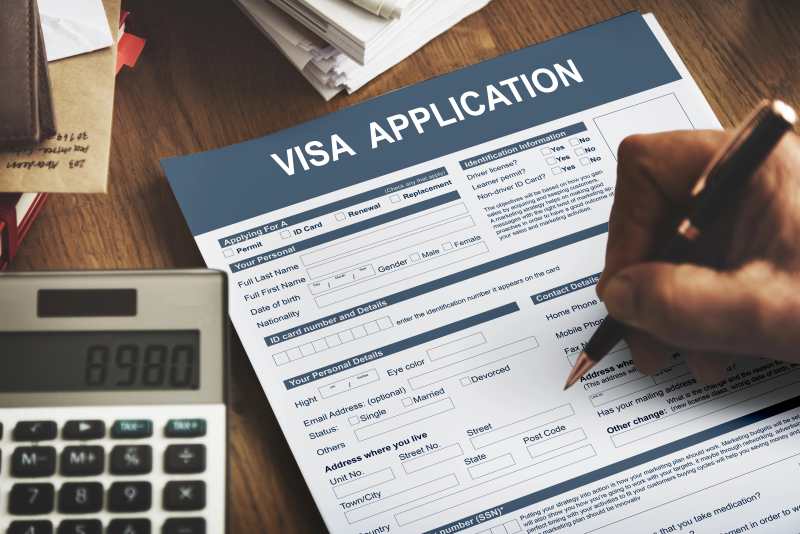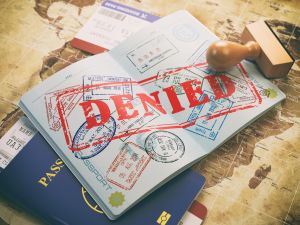Applying for a K-1 fiancé(e) Visa is a big deal, but it’s easy to make mistakes that can lead to denial. Every year, many couples are turned down for reasons that could’ve been avoided with the proper prep.
In this guide, we’ll list the top 7 reasons K-1 Visa applications are denied. You’ll learn what to watch out for and avoid common pitfalls derailing your plans.
1. Insufficient Evidence Of A Genuine Relationship
Proving a real, committed relationship is the foundation of a successful K-1 Visa application. Immigration officers will carefully evaluate whether the relationship is authentic or potentially fraudulent. Red flags may include significant age differences, language barriers, cultural disparities, or limited time spent together in person. Short engagement periods can also trigger doubt.
To avoid this pitfall, applicants should submit a variety of evidence. This includes photographs, travel records, correspondence, and affidavits from friends and family who know the couple. The goal is to paint a clear picture of a genuine bond in words and through documented proof.
Failing to do so often results in Visa denial. Once the authenticity hurdle is cleared, it is crucial to focus on the next challenge: the accuracy of the paperwork and forms submitted with the application.
2. Errors In Paperwork
One of the most preventable reasons for K-1 Visa denial is errors in paperwork. Even small mistakes—such as missing signatures, incorrect dates, or incomplete information—can cause severe delays or outright denial.
A simple typo or omission may signal carelessness or dishonesty, harming the applicant’s credibility. Missing documents or outdated forms are also common pitfalls. To avoid these errors, every petition section should be reviewed thoroughly. Supporting documents must be up-to-date, complete, and clearly labeled.
While paperwork may seem straightforward, attention to every detail can make or break the process. After ensuring the forms are accurate, the next step is to meet the financial eligibility requirements required by immigration law.
3. Failure To Meet Income Requirements
A critical requirement of the K-1 fiancé(e) Visa is that the U.S. citizen petitioner must demonstrate financial stability. Specifically, the petitioner must prove an ability to support their fiancé(e) at or above 100% of the Federal Poverty Guidelines. Failure to meet these financial standards is one of the most common reasons applications are denied.
Once the income criteria are satisfied, the focus shifts to verifying that both parties are legally free to marry. This step is equally crucial to a successful application.
4. Ineligibility To Marry
One essential condition for obtaining a K-1 Visa is that both individuals must be legally free to marry. If either party is still married to someone else, the petition will be denied. You must prove that any previous marriages have been legally dissolved by divorce, annulment, or death.
Before applying, it is vital to gather certified copies of all relevant legal documents. Any missing or incomplete records can raise doubts about the couple’s eligibility and result in rejection.
After clearing the eligibility hurdle, the next challenge is to provide proof that the couple has met in person within the required timeframe. This requirement plays a significant role in the Visa approval process.
5. Lack Of In-Person Meeting Evidence
U.S. immigration law requires that K-1 Visa applicants meet in person at least once within two years before filing. This rule helps confirm the legitimacy of the relationship. Failure to prove this meeting often results in application denial.
Evidence such as flight tickets, hotel receipts, photographs, and travel itineraries must accompany the application. In some cases, if cultural or religious practices prevent in-person meetings, a waiver may be requested, but this is not easily granted.
Many applicants mistakenly assume that digital communication, such as video calls or social media messages, is sufficient. While these can support the application, they cannot replace the proof of a face-to-face meeting.
Once evidence is established during the in-person meeting, attention must be directed to background checks. A criminal record or inadmissibility issue can also jeopardize the entire application, no matter how intense the relationship proof is.
6. Criminal Record Or Inadmissibility Issues
Another significant reason K-1 Visa applications are denied involves criminal records or other inadmissibility issues. U.S. immigration law bars entry to individuals with certain criminal convictions, immigration violations, or health-related conditions.
Crimes involving moral turpitude, drug offenses, or prior removal orders can trigger a denial. Immigration officials carefully review background checks and medical exams to determine if the applicant poses any risk.
You must disclose any past criminal history, even if charges were dropped or convictions were expunged. Attempting to hide this information can lead to automatic rejection.
7. Failure To Demonstrate Intent To Marry Within 90 Days
One final, yet critical, reason for K-1 Visa denial is the failure to prove intent to marry within 90 days of entry. This requirement ensures the fiancé(e) Visa is used as intended—for genuine couples planning to wed, not for immigration fraud.
Immigration officers look for clear signs of intent, including written statements from both parties and evidence of wedding plans. Examples include venue reservations, guest lists, and other wedding-related documents. Lack of such proof can cast doubt on the sincerity of the relationship.
Once intent is established, applicants can feel confident addressing the most common pitfalls. However, many still have questions about the K-1 Visa process, which will be answered in the next section.
Frequently Asked Questions (FAQs) On Fiancé Visas
Even after reviewing the main reasons for K-1 Visa denials, many applicants still have questions about specific situations. Below are answers to the most common concerns related to the K-1 Visa process. Understanding these details can help you avoid mistakes and confusion.
Can We Apply For A K-1 Visa Without Meeting Due To COVID-19?
Applicants must meet at least once in person within two years before filing. However, waivers may be granted under limited circumstances, such as extreme hardship or cultural prohibitions.
Applicants must provide strong supporting evidence and a detailed explanation if travel restrictions prevented a meeting. Each request is reviewed case by case, and approval is not guaranteed.
What Happens If Our K-1 Visa Application Is Denied?
You will receive an official notice explaining the reasons for the rejection of an application. Depending on the issue, fixing the problem and reapplying or filing an appeal may be possible.
Some applicants may consider alternative Visa options based on their relationships and circumstances. Seeking professional legal guidance is the best way to determine the next appropriate step after a denial.
How Long Does The K-1 Visa Process Typically Take?
The K-1 Visa process typically takes several months to over a year. Processing times vary based on application volume, document completeness, and case complexity.
Delays can occur if additional evidence is requested or if paperwork is incomplete. Applicants are encouraged to regularly monitor USCIS processing times and stay informed throughout the process.
Navigating the K-1 Visa process can be challenging, especially when facing potential delays or denials. Working with a knowledgeable law firm can provide the guidance needed to ensure a smooth application process.
Lozano Law Firm Helps You Toward A Successful K1 Visa Application
At Lozano Law Firm, we understand that bringing your fiancé(e) to the United States is more than paperwork—it’s about building a future together. Our experienced immigration attorneys are committed to guiding you every step of the way through the K-1 Visa process.
Our team carefully reviews your case, prepares all necessary documents, and ensures your application meets every legal requirement. We also assist in gathering strong evidence to prove the legitimacy of your relationship and financial eligibility. We aim to simplify this process and protect your chance at a successful outcome.
With personalized attention and dedicated legal support, Lozano Law Firm stands ready to help you reunite with your fiancé and start your life together in the United States.
Securing a K-1 fiancé(e) Visa requires careful planning, detailed documentation, and understanding why applications are denied. Issues like insufficient relationship proof, paperwork mistakes, or financial ineligibility can quickly derail the process.
By addressing these factors early, applicants can strengthen their cases and avoid unnecessary setbacks. Lozano Law Firm is committed to helping couples overcome these obstacles. With experienced legal guidance, applicants can confidently navigate the K-1 Visa process and take the next step toward building a future together.





